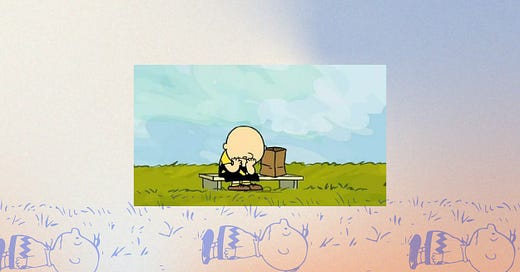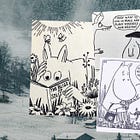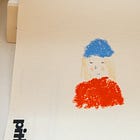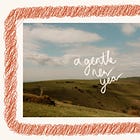Friendship is a frightening thought
on the complexities of friendship and self-discovery in your thirties.
The truth is, I was spoiled when I met my best friends. We lived a stone’s throw from one another, were each other’s priority, and had the ease of youth to nurture our group.
These days, we see each other only a smattering of times a year. We’ve grown up—some have grown families, some have moved away—but our bond remains. Like a tree tended over the years, it has grown deep, unwavering roots that no storm can shake.
That group taught me something, though: friendships made later in life aren’t as easy to sustain. And as a neurodivergent person, that’s a hard truth to work with.
Many therapy sessions, years, and revelations later, I’ve learned just how painful friendships can be. I didn’t expect, in my thirties, to find myself crying over hidden meanings behind words or feeling like I didn’t fit in. Yet, here we are.
I like to think I’m a good friend—if you can stomach the capriciousness of my presence. Understandably, not everyone can. Since my adhd diagnosis, I’ve been through the dissonance of realising I’d leant on masking like a crutch, peeling it away, and then discovering I’m not quite the person I thought I was.
It’s a strange thing, realising the personality you’ve carefully crafted is more stage act than self. Even now, I’m still picking through the pieces, trying to separate what’s authentically me from what was the mask. My ability to wear that familiar mask is fading, and in its place is someone I’m not sure I know how to play.
In unlearning the behaviours tied to my diagnosis, I may have swung too far in the other direction. After living so long in the dark, I only want to do what feels authentically good. But life requires disquieting things from us now and then. The comfort zone, while alluring, doesn’t expand if you never leave it.
How does this relate to friendships? Well, the old me strove to make memories. I’d go above and beyond—be there, do that, play the fun one. Popping on a mask was as easy as swiping on my favourite lipstick, and I lived perpetually outside my comfort zone. It had its costs, of course: burnout became the norm, and I mistook it for mild, recurring depression.
Now, aware of my true self, I find I struggle with the contradictions of adhd. In theory, I want to do it all. In practice, committing to plans feels like gambling with my future self’s mood. There’s the guilt, too—saying yes to soothe my people-pleasing tendencies, then double-booking with a level of skill that could almost be called talent. It’s a perfect recipe for friendship collapse.
You’d think that by leaning into the way my brain works, I’d feel liberated. I don’t. When I was first diagnosed, I was thrilled to finally understand myself. But last year, that thrill soured into shame. I realised how much work there still is to do.
And so, I’m frightened of making new friends. Over the past few years, countless friendships have fizzled out. Each one left me carrying the burden of disappointment, like a medal of shame pinned to my chest—a reminder to think twice before stepping into something new. I worry about being unfair to others, about becoming the object of someone else’s annoyance yet again.
In 2025, I want to find a different kind of mask. One that embraces my flaws but helps me push beyond my comfort zone. More than anything, I want to stop fearing friendship the way I do now.
Hopefully, you enjoyed this post, if you did I would be eternally grateful if you would share/restack so I can reach more people like you ♥️
Have a lovely day, Allie ☁︎
P.s. you can get 20% off paid subscriptions to A Very Good Day (for life) with the annual option until 31st January.
Recent reads on AVGD:














I will never not stop ruminating friendship in all of its messy, magic ways ❤️
Thanks for sharing your experiences Allie, so insightful!